
Kód: 04533205
Political Imprisonment and the Irish, 1912-1921
Autor William Murphy
For a revolutionary generation of Irishmen and Irishwomen - including suffragettes, labour activists, and nationalists - imprisonment became a common experience. In the years 1912-1921, thousands were arrested and held in civil pr ... celý popis
- Jazyk:
 Angličtina
Angličtina - Vazba: Pevná
- Počet stran: 314
Nakladatelství: Oxford University Press, 2014
- Více informací o knize

5108 Kč
Dostupnost:
50 % šance Máme informaci, že by titul mohl být dostupný. Na základě vaší objednávky se ho pokusíme do 6 týdnů zajistit.
Máme informaci, že by titul mohl být dostupný. Na základě vaší objednávky se ho pokusíme do 6 týdnů zajistit.Prohledáme celý svět
Mohlo by se vám také líbit
-

Time for Choosing
1646 Kč -

Battlefronts Real and Imagined
2487 Kč -

Projections 11
615 Kč -

14,000 Things to Be Happy About.
229 Kč -

Mathematical Tools In Signal Processing With C++ And Java Simulations
4397 Kč -

2nd Chance
227 Kč -

Terror
318 Kč
Darujte tuto knihu ještě dnes
- Objednejte knihu a zvolte Zaslat jako dárek.
- Obratem obdržíte darovací poukaz na knihu, který můžete ihned předat obdarovanému.
- Knihu zašleme na adresu obdarovaného, o nic se nestaráte.
Informovat o naskladnění knihy
Zadejte do formuláře e-mailovou adresu a jakmile knihu naskladníme, zašleme vám o tom zprávu. Pohlídáme vše za vás.
Více informací o knize Political Imprisonment and the Irish, 1912-1921
Nákupem získáte 511 bodů
 Anotace knihy
Anotace knihy
For a revolutionary generation of Irishmen and Irishwomen - including suffragettes, labour activists, and nationalists - imprisonment became a common experience. In the years 1912-1921, thousands were arrested and held in civil prisons or in internment camps in Ireland and Britain. The state's intent was to repress dissent, but instead, the prisons and camps became a focus of radical challenge to the legitimacy and durability of the status quo. Some of these prisons and prisoners are famous: Terence MacSwiney and Thomas Ashe occupy a central position in the prison martyrology of Irish republican culture, and Kilmainham Gaol has become one of the most popular tourist sites in Dublin. In spite of this, a comprehensive history of political imprisonment focused on these years does not exist. In Imprisonment and the Irish, 1912-1921, William Murphy attempts to provide such a history. He seeks to detail what it was like to be a political prisoner; how it smelled, tasted, and felt. More than that, the volume demonstrates that understanding political imprisonment of this period is one of the keys to understanding the Irish revolution. Murphy argues that the politics of imprisonment and the prison conflicts analysed here reflected and affected the rhythms of the revolution, and this volume not only reconstructs and assesses the various experiences and actions of the prisoners, but those of their families, communities, and political movements, as well as the attitudes and reactions of the state and those charged with managing the prisoners.
 Parametry knihy
Parametry knihy
Zařazení knihy Knihy v angličtině Humanities History Regional & national history
5108 Kč
- Plný název: Political Imprisonment and the Irish, 1912-1921
- Autor: William Murphy
- Jazyk:
 Angličtina
Angličtina - Vazba: Pevná
- Počet stran: 314
- EAN: 9780199569076
- ISBN: 019956907X
- ID: 04533205
- Nakladatelství: Oxford University Press
- Hmotnost: 616 g
- Rozměry: 239 × 160 × 23 mm
- Datum vydání: 06. March 2014
Oblíbené z jiného soudku
-

Hundred Years' War on Palestine
338 Kč -

Ten Myths About Israel
335 Kč -

Strange Death of Europe
420 Kč -
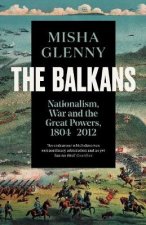
The Balkans, 1804-2012
543 Kč -
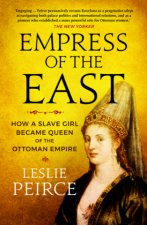
Empress of the East
357 Kč -

Diana: Her True Story - In Her Own Words
303 Kč -
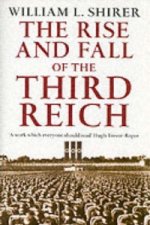
Rise And Fall Of The Third Reich
543 Kč -

Dictatorland
316 Kč -

Maurice's Strategikon
736 Kč -
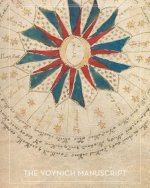
Voynich Manuscript
990 Kč -
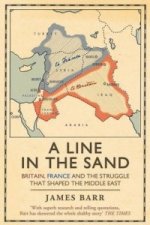
Line in the Sand
265 Kč -
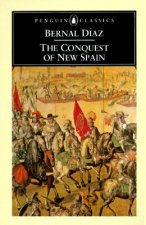
Conquest of New Spain
357 Kč -

History of Venice
587 Kč -

We Were Soldiers Once...And Young
303 Kč -

Palestinian-Israeli Conflict: A Very Short Introduction
312 Kč -

Cuneiform
276 Kč -
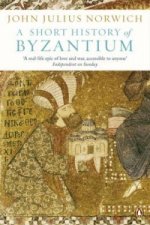
Short History of Byzantium
464 Kč -

Great War for Civilisation
545 Kč -

Flame Trees Of Thika
303 Kč -
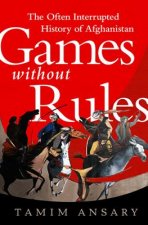
Games without Rules
450 Kč -

Battle of Britain
410 Kč -

Fortress Third Reich
653 Kč -

American Nations
422 Kč -

Brief History of the Hundred Years War
303 Kč -

Drawing on Archaeology
602 Kč -

British Culture
1850 Kč -
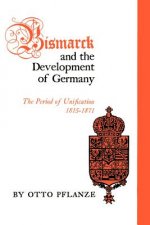
Bismarck and the Development of Germany
2473 Kč -

Setting the Desert on Fire
403 Kč -
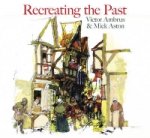
Recreating the Past
488 Kč -

Life of Anne Boleyn Colouring Book
268 Kč -

Oxford History of the Biblical World
470 Kč -

Fortress France
577 Kč -
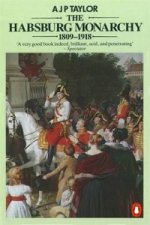
Habsburg Monarchy 1809-1918
410 Kč -

P-40 Warhawk Aces of the MTO
684 Kč -

British Destroyers 1939-45
357 Kč -

Ethnic Cleansing of Palestine
357 Kč -

Decline and Fall of the Roman Empire
130 Kč -

Palestine
545 Kč -

The Secret Diaries Of Miss Anne Lister: Vol. 1
304 Kč -

Giza Power Plant
365 Kč -

Citizens
543 Kč -
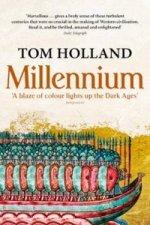
Millennium
368 Kč -

Alexiad
423 Kč -
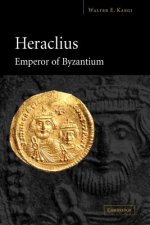
Heraclius, Emperor of Byzantium
774 Kč -

Last Voyage of the Lusitania
487 Kč -

1948
631 Kč -
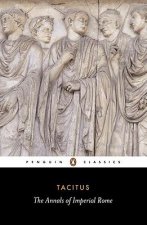
Annals of Imperial Rome
357 Kč -

Strike and Hold
703 Kč -

Moshe Dayan
675 Kč
Osobní odběr Praha, Brno a 12903 dalších
Copyright ©2008-24 nejlevnejsi-knihy.cz Všechna práva vyhrazenaSoukromíCookies


 Vrácení do měsíce
Vrácení do měsíce 571 999 099 (8-15.30h)
571 999 099 (8-15.30h)